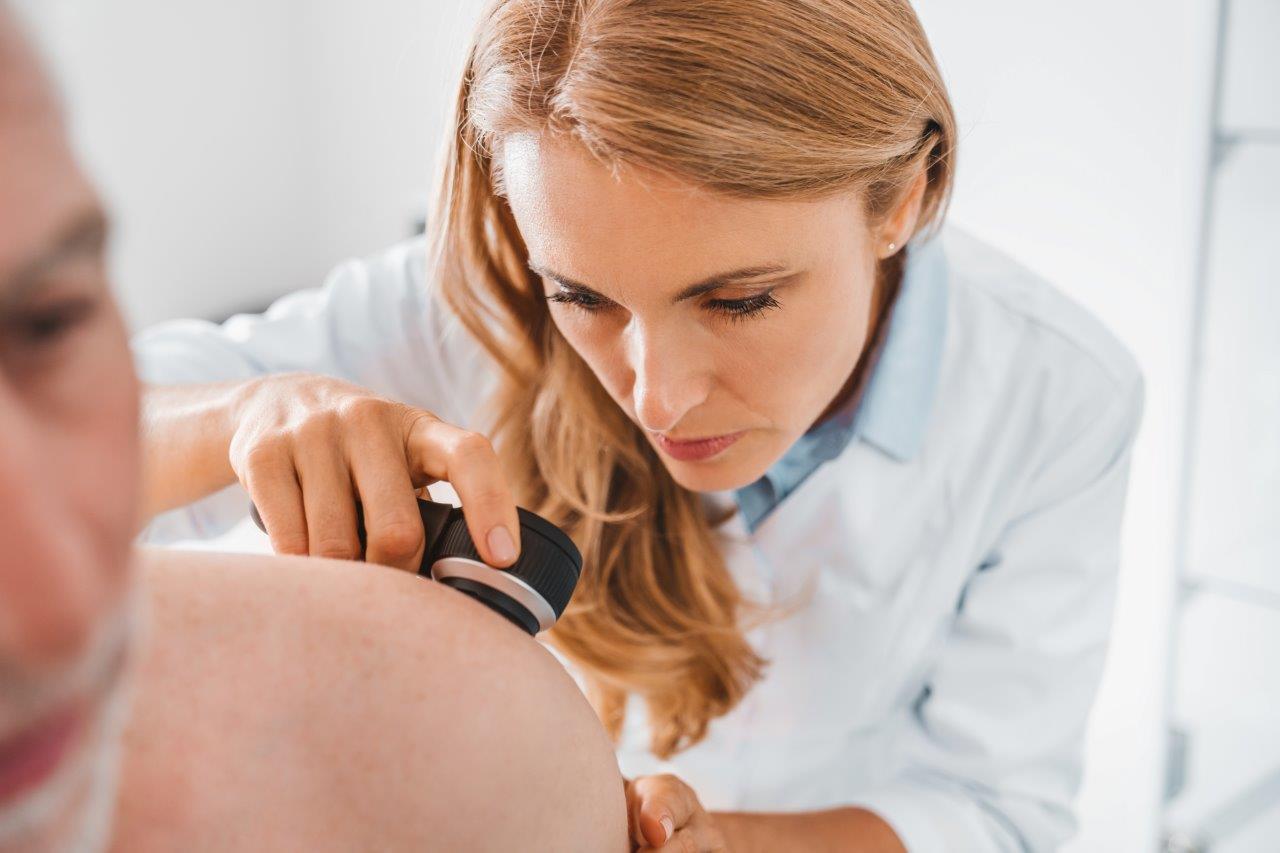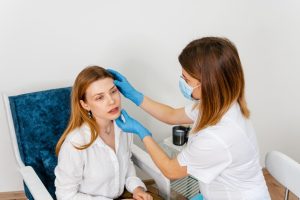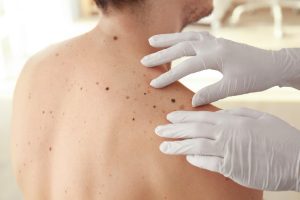
Skin Cancer Screening in Dubai at Emirates Hospitals Group. Skin cancer is one of the most common types of cancer worldwide, yet it is also one of the most preventable and treatable when detected early. At Emirates Hospitals Group, we prioritize the health and well-being of our patients by offering comprehensive skin cancer screening services. With a team of experienced and board-certified dermatologists, known to be among the best in Dubai, we provide advanced diagnostic tools and personalized care to detect early signs of skin cancer and ensure prompt treatment. Our state-of-the-art facilities and expertise make us a trusted choice for skin cancer screening in the region.

About Skin Cancer Screening
Skin cancer screening is a non-invasive procedure performed by a dermatologist to examine the skin for signs of cancerous or precancerous growths. The screening process typically involves a thorough visual examination of the skin, identifying any unusual moles, lesions, or changes that could indicate skin cancer. Skin cancer screening is essential because it allows for early detection, which significantly improves the chances of successful treatment. The screening process can vary depending on the patient’s risk factors, such as family history, skin type, and exposure to UV radiation.
At Emirates Hospitals Group, our dermatologists are skilled in detecting all types of skin cancer, including melanoma, basal cell carcinoma, and squamous cell carcinoma. Using the latest technology and diagnostic tools, we provide accurate assessments and create tailored treatment plans for each patient.

Importance of Skin Cancer Screening
Early detection of skin cancer is crucial for effective treatment and improved outcomes. Many forms of skin cancer can grow and spread quickly, making regular screenings an essential part of preventive healthcare. Here are some reasons why skin cancer screening is important:
- Early Detection Saves Lives: Skin cancer, when caught in its early stages, is highly treatable. Regular screenings can help detect cancer before it spreads, increasing the chances of successful treatment.
- Non-Invasive Procedure: The screening process is simple, non-invasive, and painless, making it a convenient preventive measure for individuals at risk.
- Monitors Skin Changes: Skin cancer screening helps monitor changes in the skin over time, identifying new or evolving moles that may be of concern.
- Reduces Risk of Severe Complications: By catching cancer early, the likelihood of needing extensive treatment or surgery is minimized, reducing the risk of severe complications.
- Personalized Preventive Care: At Emirates Hospitals Group, our dermatologists provide tailored advice on how to protect your skin and reduce your risk of developing skin cancer in the future.
Types of Skin Cancer Screening
There are various methods used in skin cancer screening, depending on the patient’s needs and risk factors. At Emirates Hospitals Group, our dermatologists employ a combination of the following techniques:
- Visual Skin Examination: The dermatologist conducts a thorough visual inspection of the skin, looking for moles, freckles, or lesions that appear abnormal. They may use a dermatoscope, a specialized magnifying tool, to get a closer look at specific areas of concern.
- Dermatoscopy: Dermatoscopy is a non-invasive diagnostic technique that uses a handheld device called a dermatoscope to examine the skin’s surface in detail. It allows dermatologists to see structures beneath the skin that are not visible to the naked eye, helping them differentiate between benign and malignant growths.
- Biopsy: If the dermatologist identifies a suspicious lesion during the screening, a biopsy may be recommended. This involves taking a small sample of the skin tissue for further analysis in the laboratory to determine if cancer cells are present.
- Total Body Photography: For patients with a high risk of skin cancer, such as those with a family history of melanoma, total body photography may be used. This involves taking a series of high-resolution images of the entire body to monitor changes in moles and skin lesions over time.
- Mole Mapping: Mole mapping is a comprehensive method of documenting and analyzing moles on the skin. It helps track the size, shape, and color of moles over time, making it easier to detect any changes that might indicate cancer.

Why Get Skin Cancer Screening?
Regular skin cancer screening is vital for anyone, particularly individuals with fair skin, a history of sunburns, or a family history of skin cancer. Here are a few reasons why you should consider scheduling a screening at Emirates Hospitals Group:
- Expert Care: Our board-certified dermatologists are some of the best in Dubai, offering expert evaluations and personalized care.
- Advanced Technology: We use state-of-the-art diagnostic tools to ensure accurate and early detection of skin abnormalities.
- Prevention and Peace of Mind: Regular screenings help identify potential problems before they become serious, giving you peace of mind and proactive control over your health.
Frequently Asked Questions
It is recommended to get screened at least once a year, especially if you have risk factors like fair skin, excessive sun exposure, or a family history of skin cancer.
No, the screening process is non-invasive and typically painless. If a biopsy is needed, a local anesthetic will be used to minimize any discomfort.
While screening can help detect most types of skin cancer, early-stage melanomas and some other forms may still require further diagnostic tests for confirmation.
Your dermatologist will visually examine your skin, check for any unusual moles or lesions, and may use a dermatoscope for a closer look. If any suspicious spots are found, a biopsy might be recommended.
You can reduce your risk by wearing sunscreen, avoiding excessive sun exposure, regularly checking your skin for changes, and scheduling routine screenings with a dermatologist.
Request an appointment
Please complete the details and we will book you shortly.
Request an appointment
Please complete the details and we will book you shortly.

